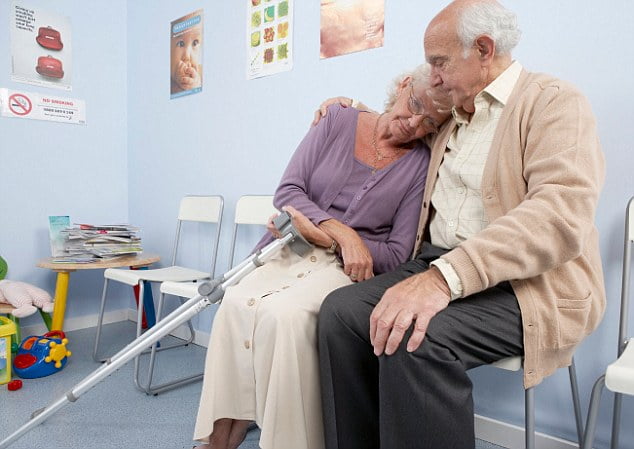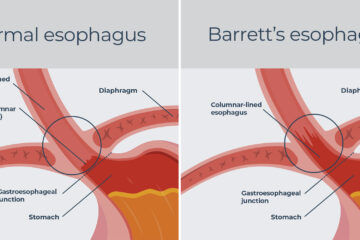Hospitals overflowing, with patients abandoned in corridors. Accident and Emergency rooms threatened with overnight closure. And it just keeps getting worse. It is clear the NHS is in a crisis that threatens its very existence.
No doubt you’ve experienced it yourself – an agonising wait for much-needed surgery, a cancelled operation, or even the infuriating engaged tone when you call a GP.
As MP for North Norfolk, the complaints I hear are constant. I know just how desperate the situation is – as a former Health Minister, I’ve seen the books.
And the unpalatable truth is that the NHS is at breaking point. That’s why today I set out my plan for an NHS and care tax. This would be the cornerstone of a new Beveridge settlement for the NHS and care, guaranteeing the sort of health and care service the sixth largest economy in the world should be capable of delivering.
It may sound radical but if we are to preserve our much-loved NHS and ensure people get the best possible care, urgent action is needed. I don’t come to this lightly, but when you look at the figures, as I have, it is the only solution that adds up.
The tax I’m proposing would come straight out of your pay packet but, rather than disappearing into the black hole of Government finances, it would go directly towards funding our cherished health service.
I know it is easy for people to be misled. In 2002, when Gordon Brown, then Chancellor of the Exchequer, raised National Insurance by 1p in the pound to bridge the funding gap in the NHS, the extra raised was not all spent on health.
That’s the attraction of a dedicated fund. You know where your money is going. We are way behind most European countries.
We spend about eight per cent of our gross domestic product on health, while Germany and France spend more than 11. That means those with significant medical needs abroad are getting better care than here, and I can’t tolerate that.
Of course, it’s easy to forget that the sheer reach of the health service is also a positive story. When that great Liberal, William Beveridge, proposed the NHS in the 1940s, the country was a very different place. Now, people survive diseases that in the past would have proved fatal. People live much longer.

We spend about eight per cent of our gross domestic product on health, while Germany and France spend more than 11 (file pic)
But those extra years are not always lived in good health. Over ten years, we have seen a 50 per cent rise in the number of people living with three or more chronic conditions.
Yet, in the face of these growing pressures, Government plans will lead to the percentage of national income spent on health and care reducing. That doesn’t make sense.
It is widely accepted that there will be a £30 billion shortfall by 2020.
The Government said it would find £8.4 billion towards that total but, last month, the Health Select Committee concluded that the real increase offered by the Government was more like £4.5 billion – massively short of the amount needed. They described the challenge facing the health service as ‘colossal’.

William Beveridge, proposed the NHS in the 1940s
We’re living on borrowed time, with services often maintained only thanks to staff who go the extra mile and work overtime at the end of long shifts – up to 18 hours in Norfolk.
In two years, we have seen a fourfold increase in the number of patients waiting more than two hours outside A&E when they’re handed over by the ambulance service.
This means ambulance crews can’t be released for their next job. These can be life-and-death situations.
Just the other day I spoke to a senior ambulance leader who said delays are leading to patients dying. At least 100 GP surgeries have applied to stop accepting patients because of a shortage of doctors.
Last week, the crisis-hit Grantham and District Hospital in Lincolnshire said it may be forced to reduce A&E opening hours and inspectors warned of serious safety concerns at the Pennine Acute Hospitals NHS Trust in Greater Manchester, one of the largest in England.
Meanwhile, my constituents tell me of a 15-year-old girl with a severe eating disorder rushed to hospital two months after being told her BMI wasn’t low enough to qualify for treatment, and an elderly woman suffering dementia stuck in a hospital bed with nowhere to go.
This year I received a heart-rending letter from an autistic boy aged nine who told me he felt ‘very depressed’. His family had been told the wait for a diagnosis would be over two years.
I’ve also seen the problem first-hand. When our son Archie was a teenager, we were told he would have to wait six months to receive treatment for obsessive compulsive disorder.
Like any parents, we did whatever we could to help our son and decided to pay for private care, realising that for many this simply wouldn’t be an option. I can’t begin to justify a situation where you get treatment if you can pay for it but if you can’t, you are just left waiting.
So when I talk about the NHS heading for a crash, it’s thanks to an accumulation of unacceptable stories of patients ignored and unnecessary deaths. I believe we must do better.
[Source: Daily Mail]




